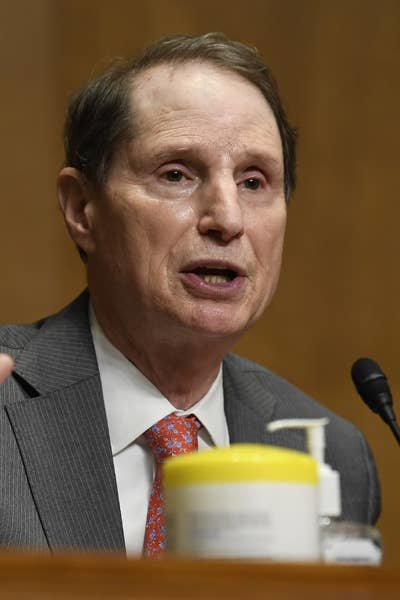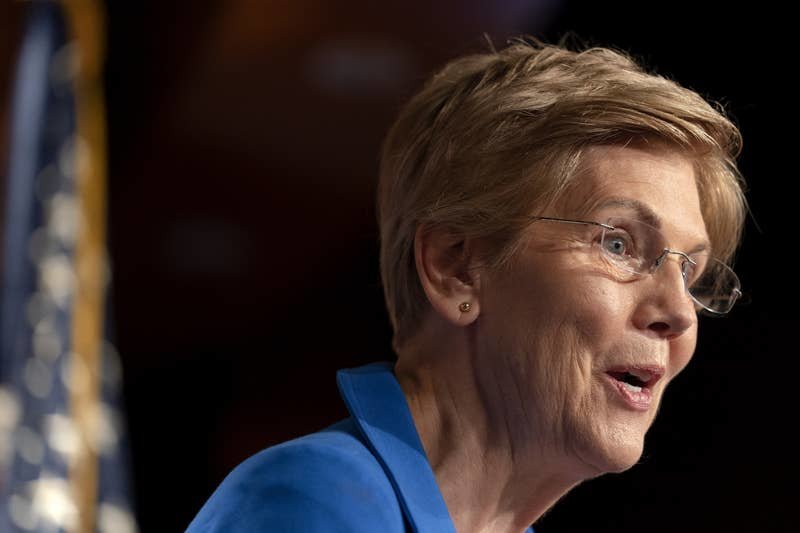
The FinCEN Files Revealed Huge Banking Problems. Now The World Is Trying To Fix Them.
In the weeks after BuzzFeed News, the International Consortium of Investigative Journalists, and 108 newsrooms around the world began publishing stories based on a cache of secret records, UK lawmakers launched a formal inquiry into Britain’s oversight of banks, members of the European Parliament advocated for a stronger response across the continent, and investigations were opened in countries ranging from Thailand to Liberia.
Significantly, the FinCEN Files provided a final push in Washington, DC, for passage of a momentous new law taking aim at one of the most effective money laundering tools cited in the stories: anonymous shell companies. The legislation, passed last week with overwhelming bipartisan support, requires many of these secretive American companies to disclose who owns them and who profits from them.
The Corporate Transparency Act marks the most substantial revision to anti–money laundering laws since the Patriot Act in 2001.
Provisions in the legislative package, tucked into the annual defense spending bill, also address many of the other systemic problems identified in the FinCEN Files, which exposed the ineffectiveness of government oversight and the myriad ways that banks fail to stanch the flow of dirty money.
Among those reforms: The Justice Department would have to file yearly reports justifying its use of deferred prosecution agreements — sweetheart deals allowing banks that have run afoul of anti–money laundering laws to avoid trial and criminal convictions. The US Treasury Department would also seek new technologies to better identify criminal money flows and to increase communication between the private sector and federal agencies. And those who blow the whistle on misconduct would get new protections.
Although President Donald Trump has vowed to veto the overarching bill — because it does not revoke an unrelated set of protections for social media companies — lawmakers could override the veto.
Public officials have cited the BuzzFeed News–ICIJ investigation as a reason the reforms gained support after years of inaction. “The BuzzFeed story makes clear we need to strengthen, reform, and update our nation’s anti–money laundering laws,” said Sen. Sherrod Brown, the top Democrat on the Senate Banking Committee. “This action is long overdue.”

Sen. Ron Wyden
To pursue the FinCEN Files investigation, reporters on six continents sifted through a vast disclosure of suspicious activity reports, or SARs, from the US Treasury Department’s Financial Crimes Enforcement Network (FinCEN). The SARs detailed more than $2 trillion in suspicious transactions in nearly every corner of the globe, with reporters linking flows of money to terror groups, drug kingpins, and kleptocrats. The 16-month investigation established how banks have helped facilitate mass-scale money laundering and how national regulators have failed to reign in the criminals or clamp down on banks.
Weeks before publication, journalists working on the FinCEN Files informed government leaders of their findings and requested comment. Officials in the US and UK announced they would be changing anti–money laundering rules — the exact rules that the FinCEN Files showed were broken and ineffective.
After BuzzFeed News contacted the US Treasury Department, the agency announced that it would begin taking suggestions from the public and insiders on how to update the Banking Secrecy Act of 1970, which has long governed the country’s anti–money laundering policies. Lobbyists, banks, financial services firms, and academics submitted 110 comments, with many confirming what the FinCEN Files had shown: The US anti–money laundering protections badly need to be overhauled.
Meanwhile, on Sept. 18, two days before the first FinCEN Files stories were published, officials in London announced plans to improve the way the UK collects information about companies registered there.
“It is hard not to believe that the impending publication of the FinCEN Files forced their hand on this,” said Tom Keatinge, director of the Centre for Financial Crime and Security Studies at the Royal United Services Institute.
Once the stories broke into public view, the calls for reform grew louder.
British lawmakers launched a formal inquiry into the “deeply troubling” questions raised in the FinCEN Files. Parliament’s Treasury Committee vowed to examine what progress government regulators and law enforcement agencies have made in preventing money laundering.
Speaking in the European Parliament, politicians called for uniform regulations and stronger supervision in the form of a new oversight agency or greater powers for the existing body, the European Banking Authority.
“The existing anti–money laundering system simply does not work,” said Eero Heinäluoma, a Finnish member of the European Parliament, during a debate on the FinCEN Files. “It is a Swiss cheese, full of holes.”
Other national governments have also jumped on the findings. In Seychelles and Liberia, revelations by journalists were referred to anti-corruption units for further action.
At the same time, criminals and autocratic regimes, long accustomed to keeping their financial dealings secret, lashed out at journalists. Before and after publishing the FinCEN Files, reporters in countries in Africa and the Middle East were shouted at, intimidated, and threatened with lawsuits. In Turkey, a court blocked the publication of multiple FinCEN Files stories.
At the same time, the FinCEN Files have proven to be a powerful tool in the international fight for transparency and accountability.
Activists in Niger submitted a FinCEN Files story as part of a groundbreaking lawsuit seeking to force the government to open a corruption investigation into $120 million that an official audit said went missing. In Thailand, regulators are probing four domestic banks whose transactions were highlighted by an analysis for the series. And Belgian banks proposed the creation of a platform to exchange information about suspicious transactions, and American banks supported the legislation targeting shell companies.
The lobbying arm of the banking industry, by contrast, has attempted to downplay the investigation’s findings.
The Bank Policy Institute issued a statement, supported by ads on social media, attempting to throw cold water on the significance of the FinCEN Files.
The institute disputed a central finding: that banks sometimes continue to process transactions for customers who had been repeatedly flagged for suspicious behavior. The lobbying group said that the government “frequently” tells the banks to keep those accounts open so law enforcement agents can monitor them.
Among the documents in the FinCEN Files, however, BuzzFeed News could find only two mentions of any such instruction.
The lobbying group also has argued that a large portion of SARs have nothing to do with illegal activity. Citing survey information from 14 banks, the group said: “Our data indicate that about 4 percent of SARs result in any follow-up from law enforcement. A tiny subset of these results in an arrest and ultimately a conviction.”
The group also said: “Ultimately, this means that 90–95% of the individuals that banks report on were likely innocent.”
But a lack of official follow-up doesn't necessarily mean that the flagged activity was lawful. Federal investigators don’t have the resources to chase every lead and don’t automatically notify banks when they investigate the subjects of SARs, interviews with law enforcement officials show.
By law, banks must file a report when they spot transactions that bear the hallmarks of money laundering or other financial misconduct. SARs are not by themselves evidence of a crime but are considered vital for law enforcement to pursue illegal activity.
During a speech this month to the American Bankers Association, FBI Director Christopher Wray said SARs "capture an incredible range of conduct" and allow agents to "follow financial trails, investigate specific individuals and entities, identify leads, connect the dots, and advance investigations.” The records, according to law enforcement sources, can help trace parts of drug networks, clarify the financing behind terror cells, and help officials decide whether to blacklist companies or individuals involved in misconduct.
Contacted by BuzzFeed News with questions for this story, the Bank Policy Institute responded by again citing its own research on the issue and reiterating that the FinCEN Files was based on an “incredibly narrow” slice of documents, a fraction of the millions filed every year.
In the immediate aftermath of publication of the FinCEN Files, global banking stocks tumbled dramatically, but it was more than share values that had the industry buzzing. The series also prompted reflection and debate in a range of media and industry forums. “That banking scandal is a doozy,” the Independent, a UK publication, noted. “The reverberations ... will be felt for months if not years.”
In more than 100 opinion pieces and columns that have been published in trade and business publications since September, industry experts have pointed to the FinCEN Files while advocating for change. In International Banker, Laurent Liotard-Vogt and Florent Palayret, who work at the business management consulting firm Chappuis Halder & Co., proposed solutions, including regulations to prevent shell companies, and concluded: “It is the whole system that is on the verge of collapse and needs to be rethought.”
Nine days after the findings from the FinCEN Files investigation were revealed, Linda A. Lacewell, the superintendent of the New York State Department of Financial Services, published her own analysis, noting that the series provided an opportunity to tackle long-standing problems. “Now, with this new spotlight, we must act,” she wrote.

Sen. Elizabeth Warren, a member of the Committee on Banking, Housing, and Urban Affairs, has cited the stories in calling for substantive changes in oversight.
In a statement to BuzzFeed News this week, she said that the Corporate Transparency Act should be only a first step and she will advocate for additional reforms, including making Wall Street more accountable for financial crimes. “I'm going to keep pushing my legislation to hold executives personally and criminally liable when their organizations skirt the law.”










